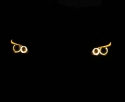BMWKLUB.SK
... všetko o BMW ...
Moderátori: barabas, k33p, Hugino, voMacK
-

- spekillant
- Príspevky: 485
- Registrovaný:
- Kraj: Trnavský
Re: Politika a ine sr*cky
krista, ked som pocas Korony pozoroval na ludoch v okoli jak im zajebalo, popieranie reality, vlastne praudy, duningkruger9000, tak to bolo smutne.
Ale aky shitstorm debility som spozoroval teraz, to uz mi je do placu. Kazdy je patriot, putin je slovanska nadbytost, yankees go home. Uz mi je na vracanie z ludi tuna.
paci sa mi ako si ho pomenoval "nas otec". Jak nejaky duchovny vodca
Ale aky shitstorm debility som spozoroval teraz, to uz mi je do placu. Kazdy je patriot, putin je slovanska nadbytost, yankees go home. Uz mi je na vracanie z ludi tuna.
Abyssko napísal:Edit nas otec je terazv kyjeve a ze rusi su 20km od kyjeva (berte to z rezervou ale je tam uz dva tyzdne, hadam vie)
paci sa mi ako si ho pomenoval "nas otec". Jak nejaky duchovny vodca
-

- boborjelotor
- Príspevky: 4537
- Registrovaný:
- Kraj: Trenčiansky
Re: Politika a ine sr*cky
Andrej Danko vyhlásil, že „túto situáciu nie je možné jednoznačne vyhodnocovať ako útok zo strany Ruska“. „Ukrajinská vláda 8 rokov terorizovala ruských obyvateľov v Doneckej ľudovej republike a Luhanskej ľudovej republike. Rusko dlhé obdobie upozorňovalo, že tam prebieha genocída, a že si neželá prítomnosť vojsk z USA v Európe. Rusko sa rozhodlo pomôcť ruskému obyvateľstvu na Ukrajine,“ vyhlásil.
-

- rapidwinner
- Príspevky: 869
- Registrovaný:
- Kraj: Prešovský
Re: Politika a ine sr*cky
https://www.independent.co.uk/news/worl ... 22128.html
Ale ten pocit, ked ti Stinger 40 rokov neda pokoja.
Ale ten pocit, ked ti Stinger 40 rokov neda pokoja.
-

- Abyssko
- Príspevky: 4165
- Registrovaný:
- Auto: E60 535d, e91 330xd
- Kraj: Žilinský
- Bydlisko: Dolný Kubín
Re: Politika a ine sr*cky
spekillant napísal:Moj nevlastny otec ale otec mojich surodencov kurva,nekonspirujkrista, ked som pocas Korony pozoroval na ludoch v okoli jak im zajebalo, popieranie reality, vlastne praudy, duningkruger9000, tak to bolo smutne.
Ale aky shitstorm debility som spozoroval teraz, to uz mi je do placu. Kazdy je patriot, putin je slovanska nadbytost, yankees go home. Uz mi je na vracanie z ludi tuna.
paci sa mi ako si ho pomenoval "nas otec". Jak nejaky duchovny vodca
-

- pistacik11
- Príspevky: 4219
- Registrovaný:
- Auto: 4 kolesa ma
- Kraj: Zahraničie
Re: Politika a ine sr*cky
Trošku na odľahčenie
https://vm.tiktok.com/ZMLk6LdqQ/
PS. Putin to kus vecej prehnal. Sympatie sú het. Kokoci jak juesej.
PS2. Ak budú potrebovať pomoc s nocľahom, kľudne prichylim 2 ukrajinky 18-30 na chate.
https://vm.tiktok.com/ZMLk6LdqQ/
PS. Putin to kus vecej prehnal. Sympatie sú het. Kokoci jak juesej.
PS2. Ak budú potrebovať pomoc s nocľahom, kľudne prichylim 2 ukrajinky 18-30 na chate.
Naposledy upravil/-a pistacik11 v Štvrtok, 24. Februára 2022, 19:19, upravené celkom 1 krát.
E65 745i pribehy-nasich-aut/e39-523i-winterauto-pohrebak-t110983.html
e36 M3 EVO http://www.bmwklub.sk/pribehy-nasich-au ... 52201.html
E46 330d ex
E39 523i touring ex
e36 325i coupe ex
e36 325i sedan ex
e36 M3 EVO http://www.bmwklub.sk/pribehy-nasich-au ... 52201.html
E46 330d ex
E39 523i touring ex
e36 325i coupe ex
e36 325i sedan ex
-

- ViktorDDD
- Príspevky: 9791
- Registrovaný:
- Auto: BMW E34 525 TDS
- Kraj: Bratislavský
- Bydlisko: Kr.Chlmec a BA
Re: Politika a ine sr*cky
Na tejto situacii nie je nic smiesne, ale ked to vidis inak tak ta uprimne lutujem . . .
R1100S
ex E34 525tds calypsorot
ex E39 540iA dunkelblau
ex F31 330d estorilblau
"A rare combination of sportiness and refinement, like two cars in one..."
ex E34 525tds calypsorot
ex E39 540iA dunkelblau
ex F31 330d estorilblau
"A rare combination of sportiness and refinement, like two cars in one..."
Re: Politika a ine sr*cky
pistacik11 napísal:Akoze ty si mal vazne doteraz sympatie? Ja som dufal, ze tu len robis debila, aby si bol nejak zaujimavy a provokovalPS. Putin to kus vecej prehnal. Sympatie sú het. Kokoci jak juesej.
-

- pistacik11
- Príspevky: 4219
- Registrovaný:
- Auto: 4 kolesa ma
- Kraj: Zahraničie
Re: Politika a ine sr*cky
Viktor, uvedomujem si vážnosť situácie, žiaľ bohu, som taká povaha, že smiať sa treba, aj keby na chleba nebolo.
To s chatkou a mladými ukrajinkami, je nadnesene, ale nemám problém dočasne poskytnúť, ak bude treba.
Roki Držal sa skratka, žiadne Gruzínsko, Irak, Lybia, Afghanistan, Juhoslávia ani nič podobné sa doteraz nekonali, aj Krym prebehol viac menej s minimom obetí, takže nebol dôvod.
To s chatkou a mladými ukrajinkami, je nadnesene, ale nemám problém dočasne poskytnúť, ak bude treba.
Roki Držal sa skratka, žiadne Gruzínsko, Irak, Lybia, Afghanistan, Juhoslávia ani nič podobné sa doteraz nekonali, aj Krym prebehol viac menej s minimom obetí, takže nebol dôvod.
E65 745i pribehy-nasich-aut/e39-523i-winterauto-pohrebak-t110983.html
e36 M3 EVO http://www.bmwklub.sk/pribehy-nasich-au ... 52201.html
E46 330d ex
E39 523i touring ex
e36 325i coupe ex
e36 325i sedan ex
e36 M3 EVO http://www.bmwklub.sk/pribehy-nasich-au ... 52201.html
E46 330d ex
E39 523i touring ex
e36 325i coupe ex
e36 325i sedan ex
-

- boborjelotor
- Príspevky: 4537
- Registrovaný:
- Kraj: Trenčiansky
Re: Politika a ine sr*cky
nepozastavim sa nad tym Krymom, moje naroky na tvoje schopnosti chapat suvislosti su uz tak nizke, ze este o kus nizsie a Slovensko by malo vlastny ropny vrt,
ale noze nam vysvetli to Gruzinsko...bud citame ine historicke zaznamy, alebo si dostal zle skolenie
ale noze nam vysvetli to Gruzinsko...bud citame ine historicke zaznamy, alebo si dostal zle skolenie
-

- pistacik11
- Príspevky: 4219
- Registrovaný:
- Auto: 4 kolesa ma
- Kraj: Zahraničie
Re: Politika a ine sr*cky
V septembri2009oznámila nezávislá vyšetrovacia komisia Európskej únie stanovisko, podľa ktorého vojnu vyvolala Gruzínsko a Rusko prispelo k eskalácii konfliktu.
Zdroj: https://sk.m.wikipedia.org/wiki/Vojna_v ... (2008)
Zdroj: https://sk.m.wikipedia.org/wiki/Vojna_v ... (2008)
E65 745i pribehy-nasich-aut/e39-523i-winterauto-pohrebak-t110983.html
e36 M3 EVO http://www.bmwklub.sk/pribehy-nasich-au ... 52201.html
E46 330d ex
E39 523i touring ex
e36 325i coupe ex
e36 325i sedan ex
e36 M3 EVO http://www.bmwklub.sk/pribehy-nasich-au ... 52201.html
E46 330d ex
E39 523i touring ex
e36 325i coupe ex
e36 325i sedan ex
-

- boborjelotor
- Príspevky: 4537
- Registrovaný:
- Kraj: Trenčiansky
Re: Politika a ine sr*cky
The Republic of Georgia declared its independence in early 1991 as the Soviet Union began to fall apart. Amidst this backdrop, a war between Georgia and separatists left parts of the former South Ossetian Autonomous Oblast under the de facto control of Russian-backed but internationally unrecognised separatists. Following the war, a joint peacekeeping force of Georgian, Russian, and Ossetian troops was stationed in the territory. A similar stalemate developed in the region of Abkhazia, where Abkhaz separatists had waged war in 1992–1993. Following the election of Vladimir Putin in Russia in 2000 and a pro-Western change of power in Georgia in 2003, relations between Russia and Georgia began to deteriorate, reaching a full diplomatic crisis by April 2008. From 1 August 2008, South Ossetian separatists shelled Georgian villages, with a sporadic response from Georgian troops in the area.[32][33][34][35][36] Artillery attacks by pro-Russian separatists broke the 1992 ceasefire agreement, which stipulated this type of weaponry was not allowed to be deployed in the conflict zone.[38][39][40] When Georgian president Saakashvili announced a unilateral ceasefire on the evening of 7 August 2008,[41][42][43] a new wave of South Ossetian attacks on Georgian villages followed.[44] This triggered the Georgian government into "restoring the constitutional order",[45] and sending the Georgian Army to the South Ossetian conflict zone just before midnight on 7 August.[46] Georgian troops took control of most of Tskhinvali, a separatist stronghold, in hours.
Georgia insisted Russian troops had illicitly crossed the Russo-Georgian state border through the Roki Tunnel and advanced into the South Ossetian conflict zone by 7 August before the Georgian military operation,[40][47][48][49][50][51][52][53] an accusation which Russia denied. The infamous EU Report said it "is not in a position" to consider the Georgian claims to be substantiated enough, while recognizing reports in Russian media which indicated Russian troops and equipment which did not fall under the peacekeeping mandate were present on the southern side of the Caucasus range, in South Ossetia.[54][55] Russia accused Georgia of "aggression against South Ossetia",[46] and launched a full-scale land, air and sea invasion of Georgia on 8 August which Russia called a "peace enforcement" operation.[56] Russian and South Ossetian forces fought Georgian forces in and around South Ossetia for several days, until Georgian forces retreated. Russian and Abkhaz forces opened a second front by attacking the Kodori Gorge held by Georgia. Russian naval forces blockaded part of the Georgian coast. The Russian air force attacked targets beyond the conflict zone, in undisputed parts of Georgia. This was the first war in history in which cyber warfare coincided with military action. An information war was also waged during and after the conflict. Nicolas Sarkozy, the President of France, negotiated a ceasefire agreement on 12 August.
Russian forces temporarily occupied the Georgian cities of Zugdidi, Senaki, Poti and Gori, holding on to these areas beyond the ceasefire. The South Ossetians destroyed most ethnic Georgian villages in South Ossetia and were responsible for an ethnic cleansing of Georgians. Russia recognised the independence of Abkhazia and South Ossetia from Georgia on 26 August and the Georgian government severed diplomatic relations with Russia. Russia mostly completed its withdrawal of troops from undisputed parts of Georgia on 8 October. Russian international relations were largely unharmed. The war displaced 192,000 people and while many returned to their homes after the war, 20,272 people, mostly ethnic Georgians, remained displaced as of 2014. In 2021, the European Court of Human Rights ruled that Russia maintained "direct control" over the separatist regions and was responsible for grave human rights abuses taking place there.[57][58]
###
no hovoril som, citame z jedneho zdroja, len ten slovensky vyzera ma trosku nizsi peer review index.
inak ten "infamous report" si mozes precitat tu https://rm.coe.int/consolidated-report- ... 1680a457d9
ak teda nechapeme suvislosti, svet aj cela EU vtedy mala v pici, Gruzinsko je predsa len uz bezpecne daleko, a EU nepovedala, ze vojnu zacalo Gruzinsko, ale ze nema dostatocne dokazy aby dokazalo, ze proruski separatisti strielali na gruzinske dediny ako prvi. to je rusky modus operandi, ktory im funguje uz 15 rokov, pouzity rovnako v 2014, zrecyklovany aj dnes. Ak tu vojnu zacalo Gruzinsko, bez akejkolvek provokacie, potom tuto vojnu zacala Ukrajina, rovnakou logikou.
Georgia insisted Russian troops had illicitly crossed the Russo-Georgian state border through the Roki Tunnel and advanced into the South Ossetian conflict zone by 7 August before the Georgian military operation,[40][47][48][49][50][51][52][53] an accusation which Russia denied. The infamous EU Report said it "is not in a position" to consider the Georgian claims to be substantiated enough, while recognizing reports in Russian media which indicated Russian troops and equipment which did not fall under the peacekeeping mandate were present on the southern side of the Caucasus range, in South Ossetia.[54][55] Russia accused Georgia of "aggression against South Ossetia",[46] and launched a full-scale land, air and sea invasion of Georgia on 8 August which Russia called a "peace enforcement" operation.[56] Russian and South Ossetian forces fought Georgian forces in and around South Ossetia for several days, until Georgian forces retreated. Russian and Abkhaz forces opened a second front by attacking the Kodori Gorge held by Georgia. Russian naval forces blockaded part of the Georgian coast. The Russian air force attacked targets beyond the conflict zone, in undisputed parts of Georgia. This was the first war in history in which cyber warfare coincided with military action. An information war was also waged during and after the conflict. Nicolas Sarkozy, the President of France, negotiated a ceasefire agreement on 12 August.
Russian forces temporarily occupied the Georgian cities of Zugdidi, Senaki, Poti and Gori, holding on to these areas beyond the ceasefire. The South Ossetians destroyed most ethnic Georgian villages in South Ossetia and were responsible for an ethnic cleansing of Georgians. Russia recognised the independence of Abkhazia and South Ossetia from Georgia on 26 August and the Georgian government severed diplomatic relations with Russia. Russia mostly completed its withdrawal of troops from undisputed parts of Georgia on 8 October. Russian international relations were largely unharmed. The war displaced 192,000 people and while many returned to their homes after the war, 20,272 people, mostly ethnic Georgians, remained displaced as of 2014. In 2021, the European Court of Human Rights ruled that Russia maintained "direct control" over the separatist regions and was responsible for grave human rights abuses taking place there.[57][58]
###
no hovoril som, citame z jedneho zdroja, len ten slovensky vyzera ma trosku nizsi peer review index.
inak ten "infamous report" si mozes precitat tu https://rm.coe.int/consolidated-report- ... 1680a457d9
ak teda nechapeme suvislosti, svet aj cela EU vtedy mala v pici, Gruzinsko je predsa len uz bezpecne daleko, a EU nepovedala, ze vojnu zacalo Gruzinsko, ale ze nema dostatocne dokazy aby dokazalo, ze proruski separatisti strielali na gruzinske dediny ako prvi. to je rusky modus operandi, ktory im funguje uz 15 rokov, pouzity rovnako v 2014, zrecyklovany aj dnes. Ak tu vojnu zacalo Gruzinsko, bez akejkolvek provokacie, potom tuto vojnu zacala Ukrajina, rovnakou logikou.
-

- rapidwinner
- Príspevky: 869
- Registrovaný:
- Kraj: Prešovský
Re: Politika a ine sr*cky
Tu mas tu srandu, ani keby na chleba nebolo. Mnoho ludi ho dnes ani nevedelo kupit, ty dilino.
[Screen urobeny teraz zo stranky dpsu.gov.ua, kamera Maly Berezny-Ubla]
Edit: Na link, keby ste chceli pozriet https://dpsu.gov.ua/ua/border/
[Screen urobeny teraz zo stranky dpsu.gov.ua, kamera Maly Berezny-Ubla]
Edit: Na link, keby ste chceli pozriet https://dpsu.gov.ua/ua/border/
-

- pistacik11
- Príspevky: 4219
- Registrovaný:
- Auto: 4 kolesa ma
- Kraj: Zahraničie
Re: Politika a ine sr*cky
Tak isto celý svet obetuje Ukrajinu, akoby mali riskovať zase veľký konflikt v Európe. Aspoň ja by som v reakcii na tieto slová:
"Všem, kteří by uvažovali o tom, že do věci zasáhnou zvenčí: Pokud se tak stane, budete čelit důsledkům větším, než jste čelili kdy v minulosti. Byla učiněna všechna podstatná rozhodnutí. Doufám, že mě slyšíte,“ prohlásil Putin v projevu.
takto reagoval a neriskoval väčší konflikt.
Obávam sa, že situáciu čo chvíľu využije Čína a pôjde si po Taiwan. Aspoň v podľa toho ako reaguje na konflikt v Európe.
"Všem, kteří by uvažovali o tom, že do věci zasáhnou zvenčí: Pokud se tak stane, budete čelit důsledkům větším, než jste čelili kdy v minulosti. Byla učiněna všechna podstatná rozhodnutí. Doufám, že mě slyšíte,“ prohlásil Putin v projevu.
takto reagoval a neriskoval väčší konflikt.
Obávam sa, že situáciu čo chvíľu využije Čína a pôjde si po Taiwan. Aspoň v podľa toho ako reaguje na konflikt v Európe.
E65 745i pribehy-nasich-aut/e39-523i-winterauto-pohrebak-t110983.html
e36 M3 EVO http://www.bmwklub.sk/pribehy-nasich-au ... 52201.html
E46 330d ex
E39 523i touring ex
e36 325i coupe ex
e36 325i sedan ex
e36 M3 EVO http://www.bmwklub.sk/pribehy-nasich-au ... 52201.html
E46 330d ex
E39 523i touring ex
e36 325i coupe ex
e36 325i sedan ex
-

- boborjelotor
- Príspevky: 4537
- Registrovaný:
- Kraj: Trenčiansky
Re: Politika a ine sr*cky
nuz len ked sa ho pytali na zdroj svojich dat, tak Shashank Patel odkazal na cinsky web, akurat teda ze nedal zdroj, len povedal pozrite si ich web, a ReutersGMF len zverejnilo tvrdenie, bez zdroja, ze cinske lietadla naursili ich vzdusny priestor, co robia na dennej baze uz...roky
ale klasika pista, kam vietor tam plast, hurdur Gruzinci, ale namiesto nejakeho protiargumentu zmenime temu.
ale klasika pista, kam vietor tam plast, hurdur Gruzinci, ale namiesto nejakeho protiargumentu zmenime temu.
-

- pistacik11
- Príspevky: 4219
- Registrovaný:
- Auto: 4 kolesa ma
- Kraj: Zahraničie
Re: Politika a ine sr*cky
A čo ti mám povedať, nezávislé vyšetrovanie určilo za vinníka Gruzínsko, ale klame, lebo sa im to hodí, Gruzínsko je ďaleko, nikoho nezaujíma. Ak by určili za vinného rusa, tak by to bolo písmo sväté? Teraz sa nedržíme výsledkov vyšetrovania?
Máš tam samé protichodné vyjadrenia, každý strieľal po každom a nikto po nikom. Jediné čo je známe, je, že 7.8. Večer Saakashvili vyjadril ochotu vyjednávať a výdržalo mu to do polnoci a začal ostreľovať dediny. Ako odveta, rusi zašli priďaleko, ale to sa deje aj ďaleko demokratickejsim krajinám vo/po vojne.
Teraz není čo riešiť. Rusi jednoznačne porušili pravidlá a zaslúžia si po hube a Putin do Haagu.
Máš tam samé protichodné vyjadrenia, každý strieľal po každom a nikto po nikom. Jediné čo je známe, je, že 7.8. Večer Saakashvili vyjadril ochotu vyjednávať a výdržalo mu to do polnoci a začal ostreľovať dediny. Ako odveta, rusi zašli priďaleko, ale to sa deje aj ďaleko demokratickejsim krajinám vo/po vojne.
Teraz není čo riešiť. Rusi jednoznačne porušili pravidlá a zaslúžia si po hube a Putin do Haagu.
E65 745i pribehy-nasich-aut/e39-523i-winterauto-pohrebak-t110983.html
e36 M3 EVO http://www.bmwklub.sk/pribehy-nasich-au ... 52201.html
E46 330d ex
E39 523i touring ex
e36 325i coupe ex
e36 325i sedan ex
e36 M3 EVO http://www.bmwklub.sk/pribehy-nasich-au ... 52201.html
E46 330d ex
E39 523i touring ex
e36 325i coupe ex
e36 325i sedan ex
Kto je prítomný
Užívatelia prezerajúci toto fórum: Žiadny pripojení užívatelia a 25 neregistrovaných




